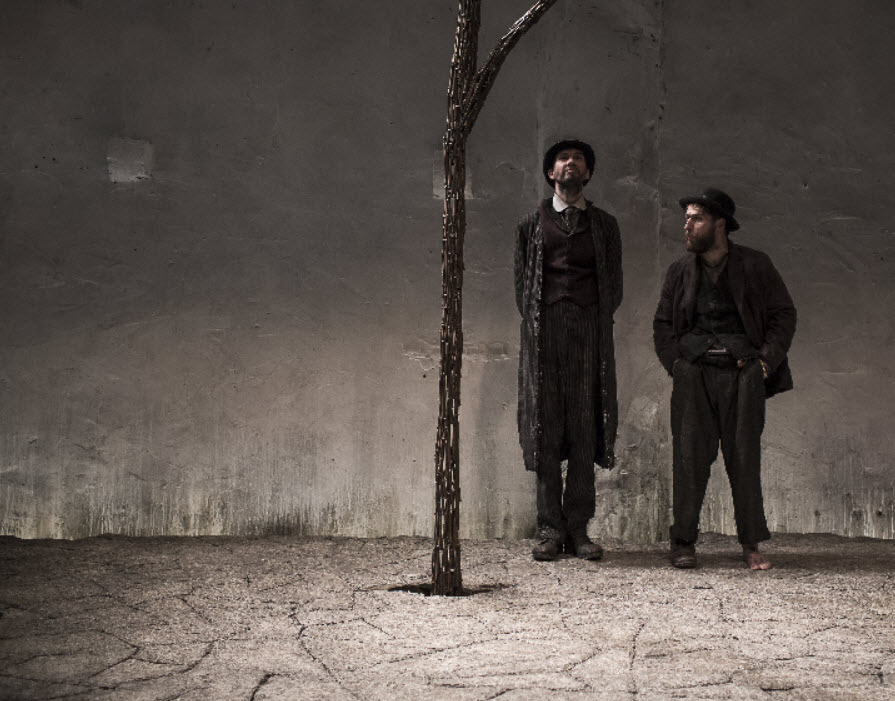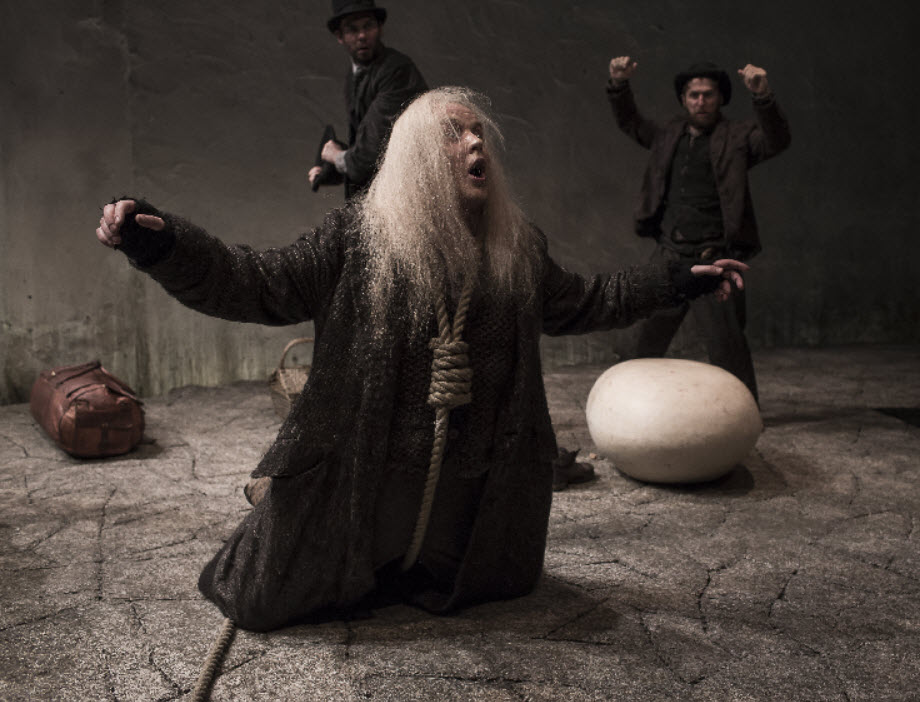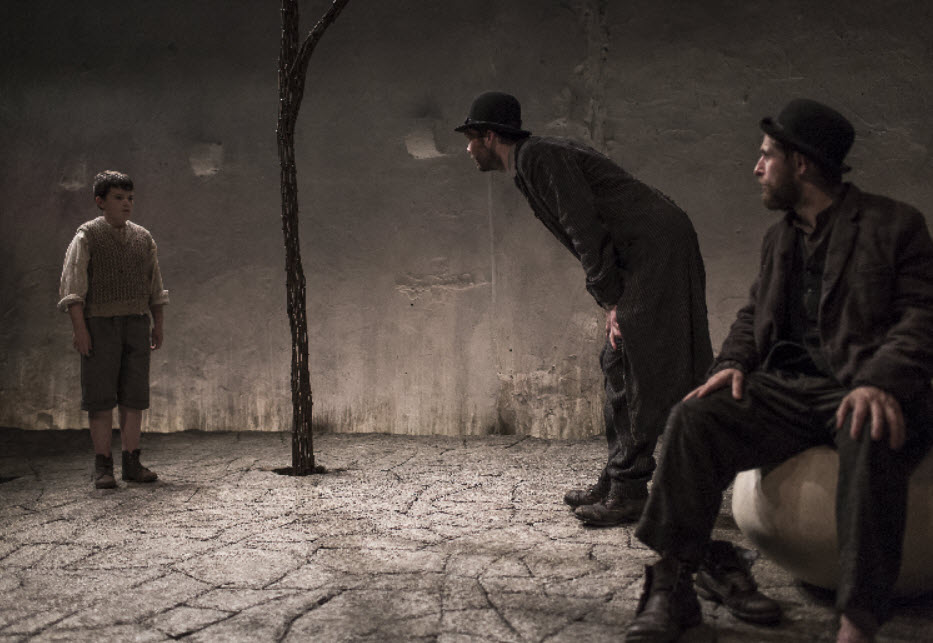Jordan Wright
April 25, 2018
When Irish playwright Samuel Beckett’s existentialist masterpiece, Waiting for Godot, was first produced in Paris in 1953, it was a time of high intellectualism and experimentation in the Arts. Modern art was blossoming and writers like James Joyce, Jean Genet and Eugene Ionesco were exploring new ways to communicate with audiences. They and many others began to reinvent the dynamic and break the mold of what the theatre arts had known. The ‘Theatre of the Absurd’ they created challenged the status quo to examine the human condition as a comic tragedy on the futility of life and the frailties of mankind. Beckett saw it as a fool’s game and chose two penniless drifters to advance his notions.

Marty Rea as Vladimir and Aaron Monaghan as Estragon. Photo Matthew Thompson.
As a highly stylized foray into the surreal – delivered in compact, visceral dialogue – Beckett’s fools, the supercilious Vladimir (the incomparable Marty Rea) and the dismissive Estragon (Aaron Monaghan in a master class performance), slowly go mad waiting for Godot to arrive. They wait in the misguided hope that Godot will save them from their misfortunes. As the two men struggle to define their reasons for living, the dialogue toggles back and forth between anger at their circumstances and hilarious attempts to make light of their gloom. Frequent references to nature – the tree, the stone and the bog – serve to anchor them to earthbound realism as they themselves continue to go madly off the rails. “There’s nothing to be done,” asserts Estragon while considering hanging himself. “I resumed the struggle,” responds Vladimir in a clear but Tigger-like non sequitur. (You may succumb, as I did, to seeking out the symbolism in every line.)

Garrett Lombard as Lucky, Marty Rea as Vladimir and Aaron Monaghan as Estragon. Photo Matthew Thompson.
To comprehend, and this is the intellectual exercise of Beckett, much of their vacillating emotional state is topsy-turvy – a clear definition of the avant garde movement. One minute they embrace the secular – a moment later the spiritual. Other times the two jolly each other up with a sort of Abbot and Costello routine of “Who’s on first?” – a running banter that defines the absurdity and futility of their predicament. There are times when you can imagine you are overhearing a couple of old sots at four o’clock in the morning in an Irish pub.
As counterbalance to their predicament, Pozzo (Rory Nolan in a larger than life portrayal of the inbred landed gentry), appears with his forlorn servant, Lucky, a sort of idiot savant played masterfully by Garrett Lombard. Altogether the men cling to the hope that they can save one another from the vicissitudes of life.

C. Conneely as Boy, Marty Rea as Vladimir and Aaron Monaghan as Estragon. Photo Matthew Thompson.
This outstanding production is directed by Tony Award-winning Garry Hynes and presented by Druid, the illustrious Irish theater company.
Francis O’Connor gives us a modernistic set design that brings to mind the surrealism of Rene Magritte and Salvatore Dali.
With lighting by James F. Ingalls, scenic and costume design by Francis O’Connor and sound design by Greg Clarke.
Highly recommended. Bring your thinking cap and your sense of humor.
Through May 20th at The Lansburgh Theatre, 450 7th Street, NW, Washington, DC 2004. For tickets and information visit www.ShakespeareTheatre.org or call the box office at 202 547-1122.